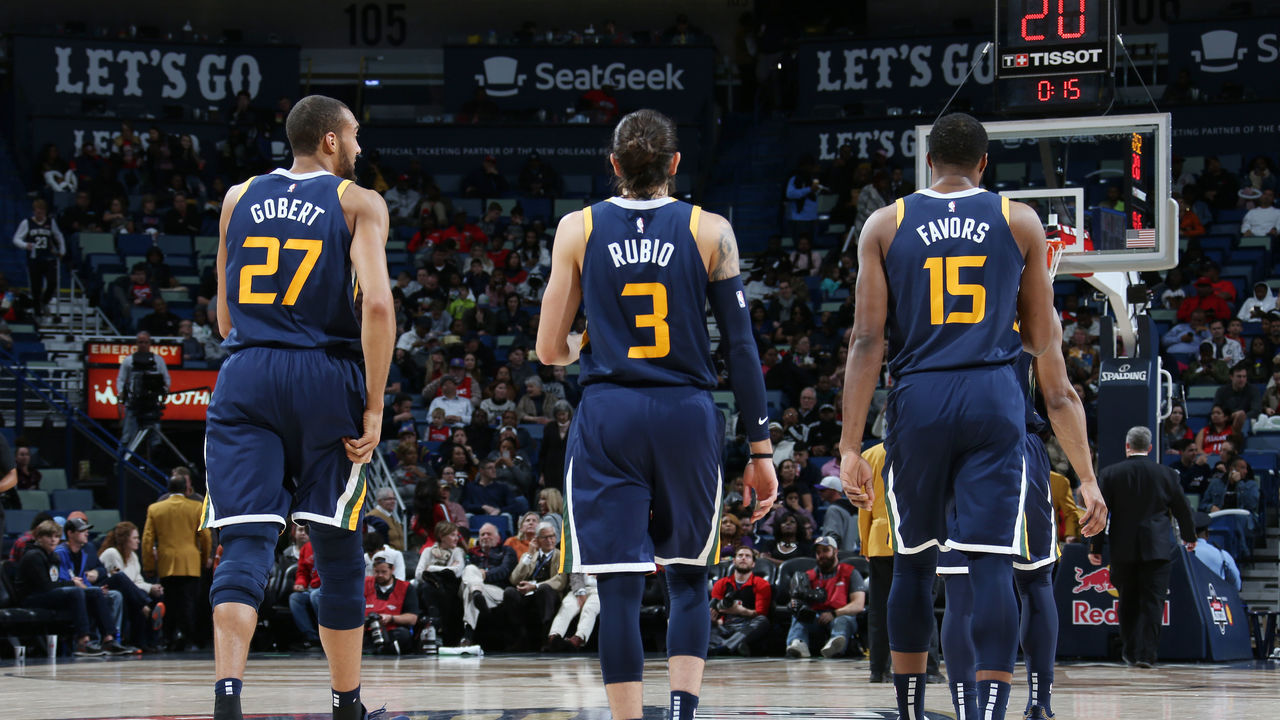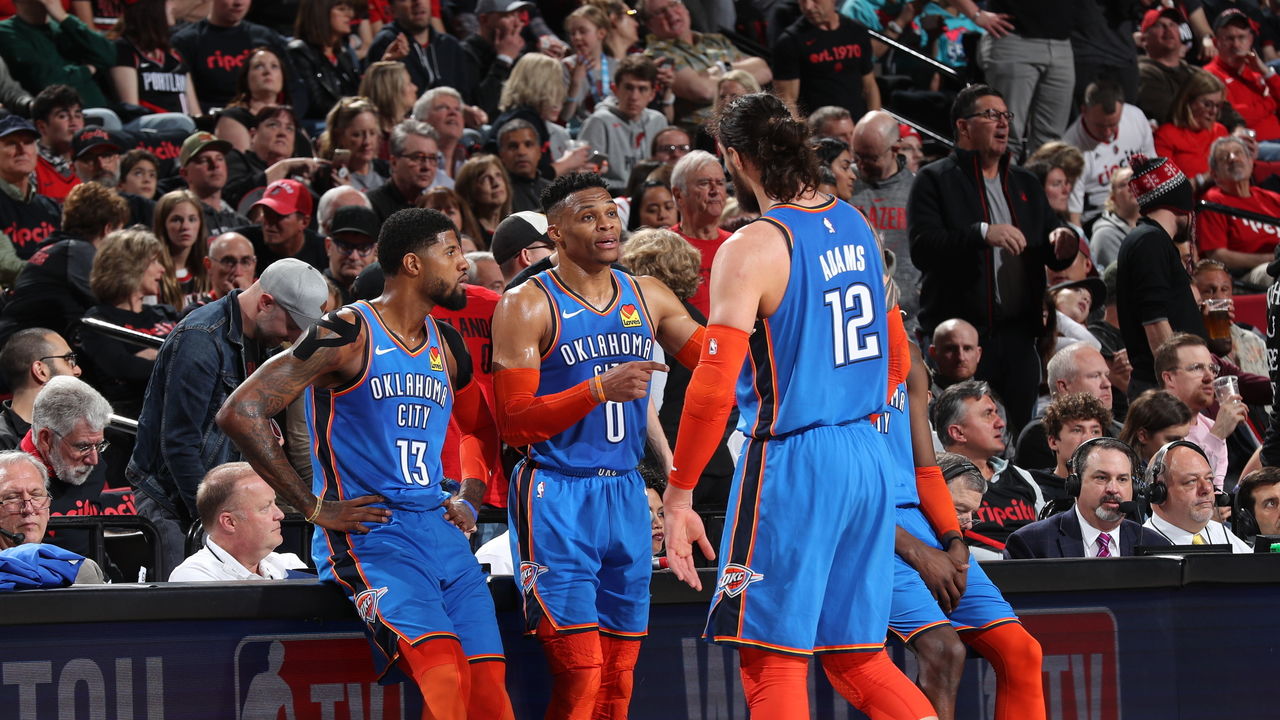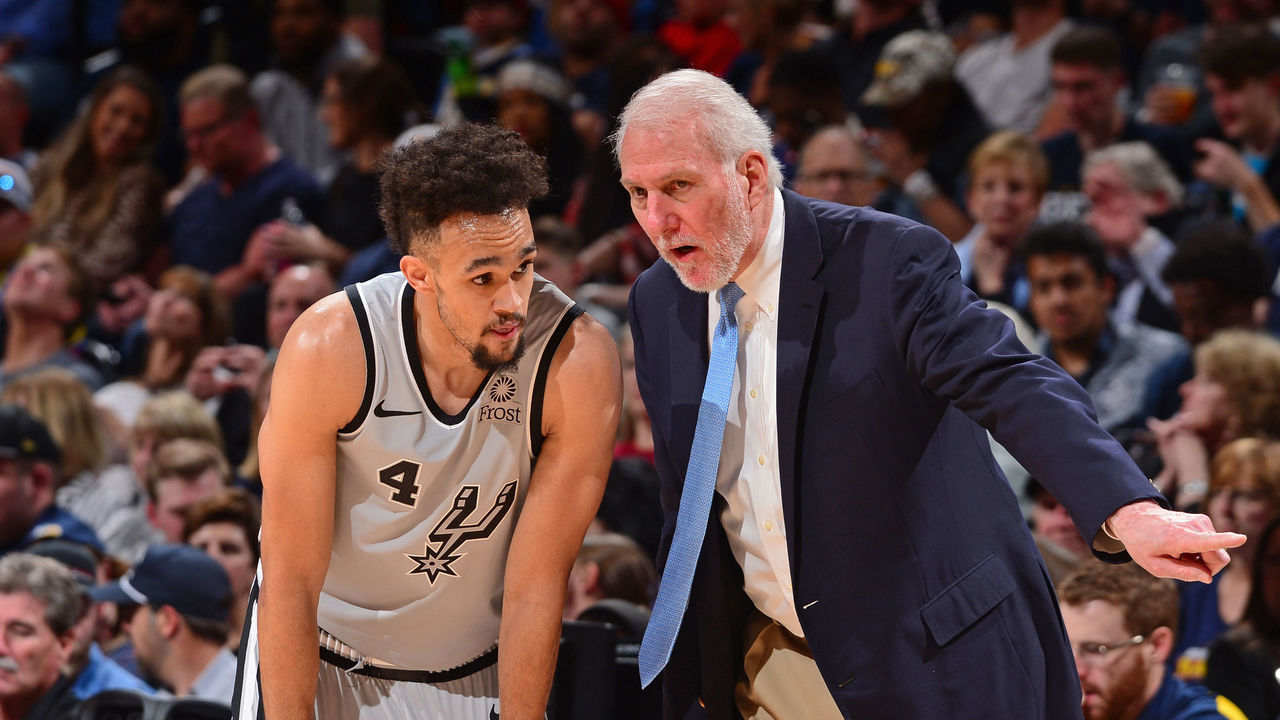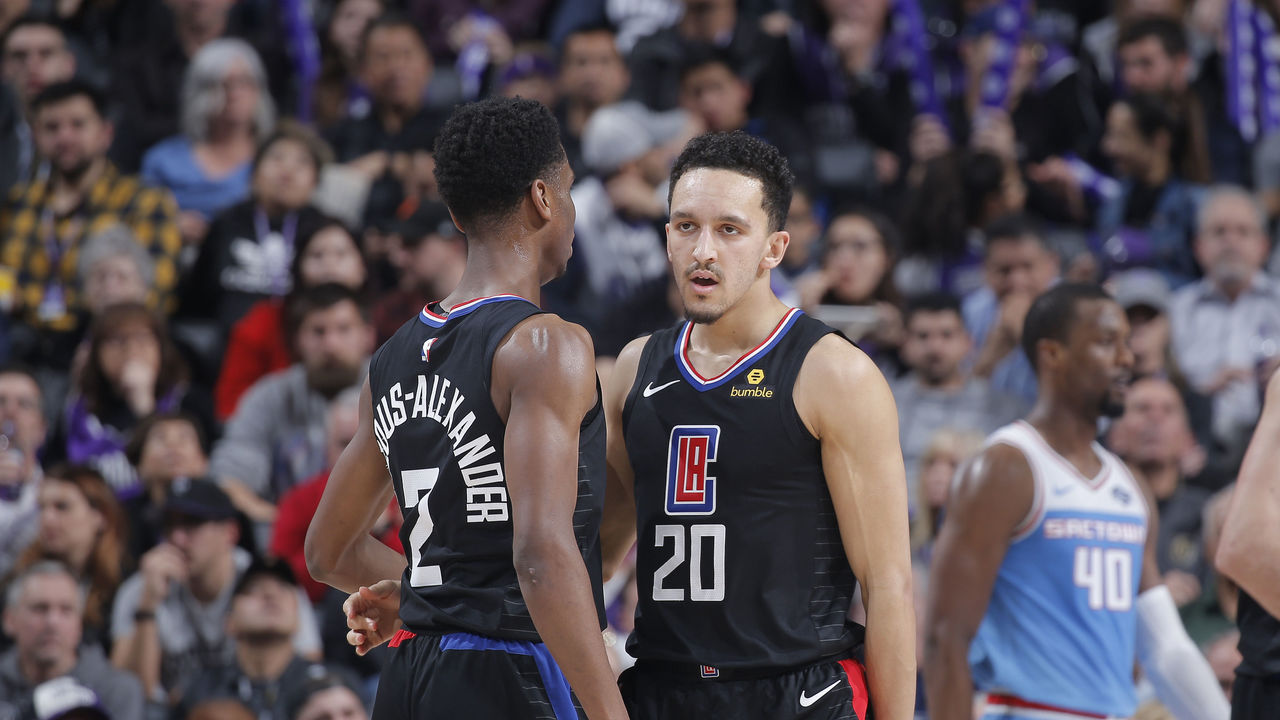What's next? Where the West's 1st-round casualties can go from here
Every year, 29 teams fall short of the ultimate goal, and every year those 29 teams are left asking themselves how they can take the next step.
With the Western Conference's first round in the books, here's a look at how the four eliminated teams might go about answering that question (read our Eastern Conference version here):
Utah Jazz

Let's start here: The Jazz are better than the Houston Rockets made them look.
Utah put together a great, if unassuming, regular season, winning 50 games and finishing with the league's second-ranked defense and fourth-best net rating. You could make a fairly convincing case that this was the third-best team in the West. But it ran into a terrible matchup in the first round, and so its playoff run lasted all of five games.
That's not to say the Jazz don't have issues that need to be addressed, but in the wake of their ugly series against the Rockets, try not to lose sight of the solid base they already have in place. Rudy Gobert is a 26-year-old rim-protecting stalwart who's probably about to win his second straight Defensive Player of the Year award. Donovan Mitchell is a 22-year-old scoring guard with phenomenal physical tools and evolving passing chops.
The Jazz will have some interesting decisions to make this summer on how to go about retooling their existing structure atop that foundation. That starts with Derrick Favors and his non-guaranteed $16.9-million salary for 2019-20. Favors was quietly excellent at both ends of the floor this season and was maybe the team's best player in the playoffs. However, it's clear he and Gobert can't effectively share the court for more than a few minutes per game. Utah's offense is already oxygen-depleted, and it suffocates when those two non-shooters are out there together. The Jazz have been so good defensively with Favors and Gobert on the floor that their minutes have still been net positives, but paying a combined $42 million to two guys who share a position doesn't seem ideal.
That said, what's the alternative? The Jazz can open up a max-salary spot by renouncing Favors, but max free agents don't tend to give Utah a look. Alternatively, the Jazz can give themselves about $25 million in space if they guarantee Favors' and Royce O'Neale's contracts (the latter feels like a certainty at $1.7 million) and renounce Kyle Korver, who is hinting at retirement anyway.
It feels like Ricky Rubio is probably gone, and that may be for the best. The Jazz need more scoring punch from that spot to prevent Mitchell from being overburdened, as he was at various points this season and especially in the first round against Houston. Joe Ingles' growth as a playmaker has really helped in that regard, but he still isn't a dynamic enough scorer to bail the Jazz out when playoff defenses get physical and switch and vaporize their elaborate screening actions.
If the Jazz can use their cap space to give themselves an offensive upgrade at the point guard spot, or to nab a wing scorer with some off-the-bounce juice (a la Khris Middleton), they should be in good shape moving forward. They're in good shape as it is - with plenty of time to figure out who they are and who they want to be - but they have a firm ceiling for now.
An interesting offseason awaits for Dennis Lindsey and Co. - Joe Wolfond
Oklahoma City Thunder

There are many franchises, especially small-market ones, who would be content establishing themselves as consistent 47-to-49 win playoff teams in the Western Conference. However, given their history, and given the money they've committed to two of the biggest names in the game, it's hard to imagine the Thunder being one of those franchises.
This season, the Thunder increased their win total by a single game for the second consecutive year, and saw their playoff run end in the first round for the third straight time. So, how can they take the next step?
First and foremost, they need to stay healthy. Paul George went from a top-three MVP candidate to a clearly hobbled star after suffering a shoulder injury midway through the season, while Steven Adams looked like a shell of himself down the stretch of the regular season and during the first-round loss to the Portland Trail Blazers. If the big three of George, Russell Westbrook, and Adams stays relatively healthy next year, OKC will be right back in the mix for a top-four seed. Heck, if the Thunder stay healthy in a revamped West that could see the Golden State Warriors weakened by free agency, they might even have an outside shot at The Finals.
They can't bank on that, though, and the Thunder are heading into the summer with zero cap space, bloated contracts that likely won't appeal to other teams, and the No. 22 pick in June's draft. There are few avenues for improvement, but they'll somehow need to address their shooting woes.
As has been customary under general manager Sam Presti's watch, the 2018-19 Thunder surrounded their superstars with a plethora of length and defensive toughness, but little spacing. A team with title aspirations can't go into another season relying on the shooting of Jerami Grant, Terrance Ferguson, and Dennis Schroder (though Grant shot 39 percent from deep this year).
Then there's the enigma that is Westbrook. His relentlessness and boundless energy make the Thunder go. But his stubbornness and subpar shot selection weigh them down when the stakes are highest. He doesn't need to completely reinvent himself, but he needs to shoot better than 29 percent from deep or stop taking more than five long-range attempts per game.
Replace some of those Westbrook jumpers with better looks for George, leverage more of Westbrook's sublime playmaking ability, and a few extra points here and there could make a profound difference in a Western Conference that always seems to be tightly packed. - Joseph Casciaro
San Antonio Spurs

If it feels like something's been missing from the second round of the playoffs since last year, the answer is the Spurs. This is the first time since 1992 that they've gone consecutive seasons without advancing to the Western Conference semifinals.
So, how do they get back there, or go even further?
While the legendary Gregg Popovich did a phenomenal job with an obviously flawed roster this season, here's the hard truth: For the first time in more than two decades at the helm, Popovich doesn't have a championship-level superstar at his disposal. Overall, the Spurs lack one of those transcendent talents for the first time in 30 years.
LaMarcus Aldridge and DeMar DeRozan are All-Star-caliber players who can carry you, but they're also defensively vulnerable, mid-range maestros who can shoot you out of a playoff game. The Spurs need to surround those two with as many shooters and defenders as possible if they want to maximize the second and potentially final year of their partnership (both DeRozan and Aldridge could hit free agency in 2020).
The good news is that San Antonio might be able to find those reinforcements internally. Dejounte Murray's return from a torn ACL will give Popovich the option of starting a tremendous defensive backcourt by pairing Murray with breakout star Derrick White and nudging DeRozan to small forward in a smaller lineup. Lonnie Walker also figures to have a better shot at cracking the rotation next year, and between the Spurs' draft record and the organization's reputation for player development, Walker and their 2019 pick shouldn't be discounted as potential 2020 difference-makers.
In addition, 3-point marksmen Patty Mills, Marco Belinelli, Davis Bertans, and Bryn Forbes are all under contract for next season, as is center Jakob Poeltl, an efficient, defensively capable big.
The catch here, however, is that the Spurs actually ranked first in 3-point percentage this season, but dead last in 3-point attempts. Popovich has adapted to - and succeeded with - the 3-point shot in the past. Can he find a way to do it again when his two best players ply their trade inside the arc? - Casciaro
Los Angeles Clippers

The Clippers' offseason plan is the NBA's worst-kept secret. They're going into the summer with the belief that they're going to lure at least one superstar free agent, and preferably two.
They're also the rare team for which that actually feels like an attainable goal. The Clippers have an embarrassment of cap space, a shrewd front office, and an owner who's willing to spend. They play in the league's most attractive market, but come without the cronyism and mad-circus dysfunction of their Staples Center cohabitants. And they've managed to successfully retool while staying competitive in the Western Conference, yanking out the Big Three era root and stem and developing a strong, identifiable culture: a team-first approach with a nasty streak.
All this stuff matters even if the Clippers' free-agent dreams don’t come to fruition. Signing Kawhi Leonard would sure be nice, but their future appears bright either way. They have a promising young backcourt with Landry Shamet and Shai Gilgeous-Alexander, who both played stretches of inspired, undaunted basketball as rookies in a playoff series against the goddamn Warriors. They still have Lou Williams and Montrezl Harrell on ridiculously team-friendly deals. They could keep those guys around to continue working their pick-and-roll magic, or they could use them as trade chips.
The Clippers have a lot of trade chips, it turns out. If they whiff on their free-agent targets, they can move their vets as part of a more comprehensive rebuild. (Throw Danilo Gallinari - on a $22-million expiring contract - into that mix.) If they do get a star free agent or two and want to nab another one, they can dangle one or both of their young guards plus the Miami Heat's unprotected 2021 first-rounder. Their only free agent of significance is Patrick Beverley, who you'd expect L.A. to try and bring back given his spiritual imprint on the team.
Because the Clippers have become so intertwined with this summer's free agency, it's easy to forget that this can go a number of ways, and that none of the possibilities are bad. Their front office, led by Lawrence Frank and Michael Winger, has given us every reason to trust them. No matter what happens in July, this organization is in a good place. - Wolfond